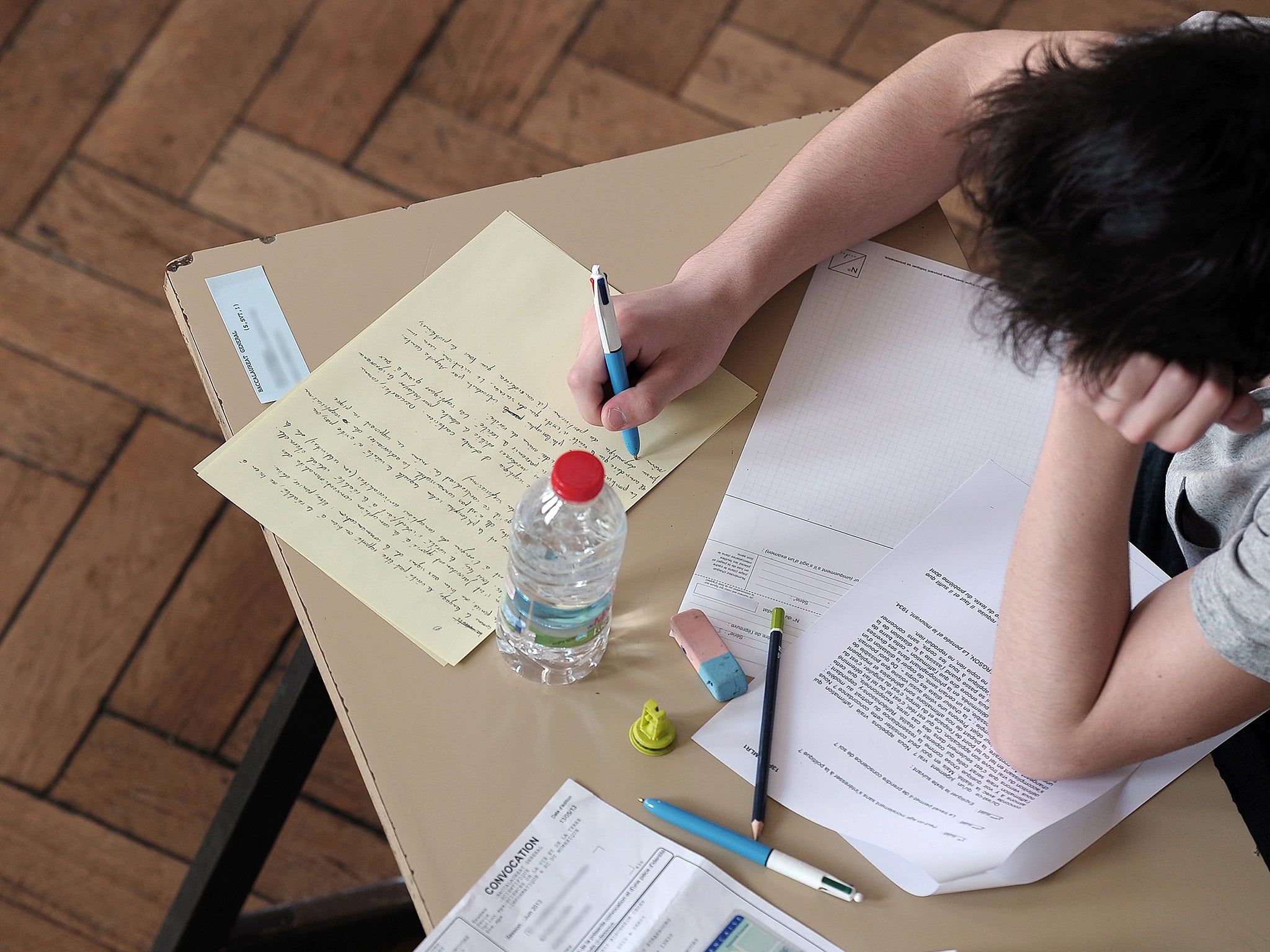Q: How much time should be spent on homework? A: 70 minutes at most, every day
Students got better test marks with regular hour-long study sessions

Your support helps us to tell the story
From reproductive rights to climate change to Big Tech, The Independent is on the ground when the story is developing. Whether it's investigating the financials of Elon Musk's pro-Trump PAC or producing our latest documentary, 'The A Word', which shines a light on the American women fighting for reproductive rights, we know how important it is to parse out the facts from the messaging.
At such a critical moment in US history, we need reporters on the ground. Your donation allows us to keep sending journalists to speak to both sides of the story.
The Independent is trusted by Americans across the entire political spectrum. And unlike many other quality news outlets, we choose not to lock Americans out of our reporting and analysis with paywalls. We believe quality journalism should be available to everyone, paid for by those who can afford it.
Your support makes all the difference.Teenagers should not do more than an hour of maths and science homework per day – according to a new study – as any more has been found to be counter-productive.
But this isn’t an excuse to slack off from revision or assignments as the best test results were produced after regular and short periods of homework, rather than longer blocks of time.
The performance of 7,725 students from 148 schools in the region of Asturias, Spain, was monitored. They were each asked how many hours they spent on different subjects and whether they received help.
Around 274 were excluded from further examination as they said they never did homework. The remaining 7,451 could choose from ‘2 or 3 days per week’, ‘almost every day’ and ‘every day’.
The teenagers – with an average age of 13.78 and 47% of which were girls – did significantly better in standardised exams if they had done homework on their own in regular hour-long blocks, researchers from the University of Oviedo found.
Students who were assigned homework regularly received nearly 50 more test points than their previous exams. Those who did maths and science homework on their own were marked an average of 54 points higher.
However, it was not noted in the study whether those who could complete homework on their own were more well-equipped to do so and thus could work independently.

Research adjustments were made for the students’ socioeconomic differences based on the schooling and careers of their parents and whether the teenager had to repeat a year.
“Our data indicate that it is not necessary to assign huge quantities of homework, but it is important that assignment is systematic and regular, with the aim of instilling work habits and promoting autonomous, self-regulated learning,” said Javier Suarez-Alvarez, co-lead author with Ruben Fernandez-Alonso and Jose Muniz.
“The data suggest that spending 60 minutes a day doing homework is a reasonable and effective time.”
The test given to students included multiple choice, short open-ended answer, and essay questions. Each of the two subjects had a booklet of 24 questions.
Subscribe to Independent Premium to bookmark this article
Want to bookmark your favourite articles and stories to read or reference later? Start your Independent Premium subscription today.
Join our commenting forum
Join thought-provoking conversations, follow other Independent readers and see their replies
Comments